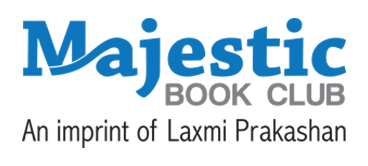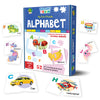Introduction: The Foundations of a Child’s Future
Early learning is a powerful tool that helps children thrive during their most formative years. From toddlers to preschoolers, every interaction shapes their development and prepares them for future success. Engaging activities like book reading and puzzle solving are more than just fun—they actively contribute to brain stimulation and set the stage for lifelong growth.
Parents often underestimate how much these small, consistent efforts can impact their children’s brain development and overall well-being. Let’s explore how early learning influences young minds and why these early years are so critical for growth.
Understanding Early Brain Development
1. Brain Growth in the First Five Years
The first five years of a child’s life are a time of rapid brain development. During this period, billions of neural connections form, driven by early experiences and learning activities. Simple actions like sharing a favourite children’s storybook or engaging in puzzle-solving provide the stimulation needed to build a strong foundation for cognitive growth.
2. The Role of Early Experiences
Early experiences shape how a child perceives and interacts with the world. Activities such as book reading during the winter break or solving puzzles spark curiosity and encourage exploration. These interactions not only enhance brain development but also improve focus and memory.
The Benefits of Early Learning
1. Cognitive Growth
2. Emotional and Social Skills
Children’s books are a gateway to teaching essential social skills like empathy and cooperation. Through shared reading or group puzzle-solving sessions, children learn to understand emotions, communicate effectively, and work as a team. These skills are crucial for their emotional growth and adaptability.
3. Building Curiosity and Creativity
Children are naturally curious. Encouraging this curiosity with children’s books names, storybooks, or hands-on puzzles helps them think creatively and fosters a love for learning during the growing years.
How Science Backs Early Learning
1. Neuroplasticity in Young Minds
2. Studies on Academic Success
Simple Ways to Encourage Early Learning at Home
1. Create a Learning Environment
2. Make Learning Fun and Interactive
Transform book reading into an exciting experience by using different voices or asking open-ended questions. Similarly, puzzle-solving becomes an adventure that strengthens problem-solving skills while fostering quality time between parents and children.
3. Incorporate Daily Learning Moments
Parents can turn everyday moments into learning opportunities. For instance, pointing out shapes during a walk or discussing the plot of a children’s storybook during the winter break stimulates curiosity and enhances brain development.
4. Use Age-Appropriate Tools
Selecting age-appropriate children’s books and puzzles is essential for keeping young minds engaged. Whether it’s children’s books names or beginner writing books, providing the right materials ensures they are both challenged and encouraged.
The Lifelong Impact of Early Learning
1.Preparing for Future Challenges
Early learning equips children with the skills they need to face future challenges. Whether it’s developing resilience or fostering adaptability, these experiences build a strong sense of confidence and problem-solving abilities that last a lifetime.
2.Laying the Foundation for Lifelong Learning
Introducing children to habits like book reading or puzzle-solving nurtures a love for learning. Storybooks, especially during the growing years, encourage curiosity and imaginative thinking, setting the stage for academic and personal success.
3.Strengthening Parent-Child Bonds
Conclusion: The Gift of Early Learning
Parents have a unique opportunity to shape their children’s future through early learning. By introducing them to engaging activities like reading books, solving puzzles, and exploring writing tools, they nurture brain development and emotional growth.
Early learning is more than just preparing children for school—it’s about fostering a mindset of curiosity, resilience, and joy. As parents, every small effort contributes to your child’s journey toward a bright, successful future.








